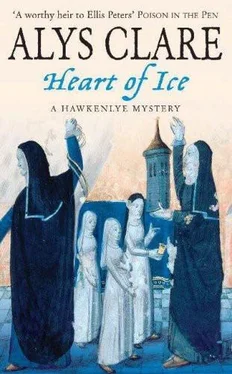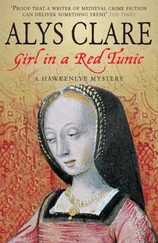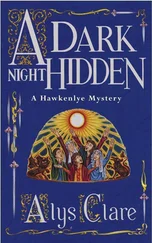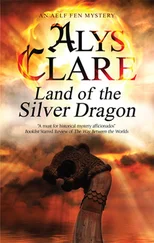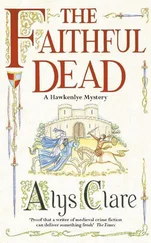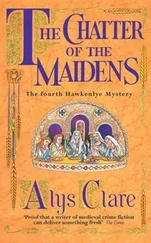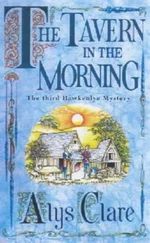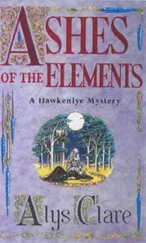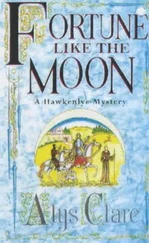Alys Clare - Heart of Ice
Здесь есть возможность читать онлайн «Alys Clare - Heart of Ice» весь текст электронной книги совершенно бесплатно (целиком полную версию без сокращений). В некоторых случаях можно слушать аудио, скачать через торрент в формате fb2 и присутствует краткое содержание. Год выпуска: 2007, Издательство: Hachette Littlehampton, Жанр: Исторический детектив, на английском языке. Описание произведения, (предисловие) а так же отзывы посетителей доступны на портале библиотеки ЛибКат.
- Название:Heart of Ice
- Автор:
- Издательство:Hachette Littlehampton
- Жанр:
- Год:2007
- ISBN:нет данных
- Рейтинг книги:4 / 5. Голосов: 1
-
Избранное:Добавить в избранное
- Отзывы:
-
Ваша оценка:
- 80
- 1
- 2
- 3
- 4
- 5
Heart of Ice: краткое содержание, описание и аннотация
Предлагаем к чтению аннотацию, описание, краткое содержание или предисловие (зависит от того, что написал сам автор книги «Heart of Ice»). Если вы не нашли необходимую информацию о книге — напишите в комментариях, мы постараемся отыскать её.
Heart of Ice — читать онлайн бесплатно полную книгу (весь текст) целиком
Ниже представлен текст книги, разбитый по страницам. Система сохранения места последней прочитанной страницы, позволяет с удобством читать онлайн бесплатно книгу «Heart of Ice», без необходимости каждый раз заново искать на чём Вы остановились. Поставьте закладку, и сможете в любой момент перейти на страницу, на которой закончили чтение.
Интервал:
Закладка:
‘Aren’t you cold?’ she asked, half laughing; he was smiling broadly, apparently taking delight in the day, although the wind was icy and Joanna was clutching Meggie under her cloak and close to her breasts.
‘No!’ he cried. ‘The Sun is always there and always warms us; we have only to remind ourselves of that to feel his heat!’
Even if I could make myself believe that, Joanna thought cynically, it will not avail poor shivering Meggie.
As if the man had read her mind, his expression grew serious. ‘You have had a long wait and the little girl is cold,’ he said. ‘I am sorry for the delay but I could not come for you until Moon was past her full.’
‘Oh.’ Joanna did not immediately understand; it was the cold, she told herself later, numbing her brain.
The man must have noticed her vacant expression. ‘The tides run dangerous high at full Moon,’ he explained gently.
‘Of course,’ Joanna muttered. Then the man picked up her pack from where it lay beside her feet and stowed it under the little boat’s central thwart. She took his outstretched hand and, clutching Meggie so tightly that the infant let out a protesting squawk, climbed aboard. The man pushed the craft off the beach, leapt in, picked up his oar and within the blink of an eye they were out in the open water and racing towards the distant shore of Mona’s Isle.
Joanna wondered afterwards if her people always made the crossing to and from the island under cover of mist or darkness, both of which conditions ensured that no inquisitive eyes observed the comings and goings. Certainly, on that day the concealing mist did its work well and she was aware of no other living being except the man with the gold earring. He ferried her safely to the island, where he beached his craft, hiding it away in the hollowed-out heart of a thorn brake, then, shouldering her pack as if it contained nothing heavier than feathers, led the way up a short, steep track that gave on to open ground covered in tussock grass and heather. The mist was still swirling thickly around them, silently covering them in drops of moisture, and Joanna could not tell how the man kept to whatever track he was following; perhaps that too, she thought, was intentional.
They walked for what seemed a long time. He stopped for one brief rest, during which Joanna fed Meggie and accepted sips from the man’s flask of some sweet, spicy liquid that brought a comforting heat to her mouth and warmed her throat and stomach. Then, all three renewed, they went on their way.
Eventually they reached their goal. They climbed up a long grassy slope strewn with boulders, as if giants had once had a battle and their missiles still lay there abandoned. Then, scaling a sort of lip that seemed to be a part of the natural landscape, they descended into a wide glade guarded by a circle of huge trees. Just at that moment the mists began to clear and Joanna saw that — of course — the trees were oaks.
So began her time on Mona’s Isle. The sense of timelessness that she had already fleetingly experienced became a permanent state and she could never afterwards say exactly how long, in days and weeks, that first stay was. She knew only that, in terms of acquisition of knowledge, it seemed to go on for ever.
She and Meggie were housed in what was clearly one of her people’s temporary dwellings, but this had been carefully constructed and was warm and snug. They lived with the other young mothers and their infants, whose company — in that time of learning so much that was strange, frightening, intense — was, at the end of each day, a wonderful reminder that she was still human, still a new mother whose prime concern was to put her child to the breast and watch her grow strong. The women welcomed her but asked no questions concerning who she was and where she came from; they did not even ask her name, although they did enquire as to Meggie’s.
Joanna was given a day or two to settle in. Then they sent for her and her instruction began.
She learned so much.
On a night of dark Moon a fortnight after her arrival, her people enacted the ancient tales of Mona’s Isle. She wondered at first if this was for her benefit — part of the teaching — but she soon realised that this was a regular event, the means by which the tribe ensured that the story did not die and that the people remembered their own past, and she chided herself for her presumption.
The ceremony took place on a mild night. Joanna and the other mothers were ordered to take their babies with them and, well wrapped in a fur cloak, Joanna settled on the ground and waited in expectation.
The tale unfolded with men in hide cloaks and animal masks creeping through the encircling oak trees and into the clearing. Their first act in the dark, sacred grove was to give praise, in a sudden screaming shout to the night sky that made Joanna’s heart leap into her mouth and set Meggie wailing. The woman beside her gave her a grin and told her to put the babe to the breast: ‘That’ll give her something else to think about!’ As Meggie suckled, Joanna gave herself up to the performance.
She watched as the men in masks were joined by others — women and children — and a society was formed. She watched the people divide themselves into small groups, some hunters, some berry gatherers, some the guardians of the people’s stock animals. She watched as some of the men and the women stood up tall and put on robes of pure white, miming the action of cutting something obviously precious from the oak trees with small golden sickles. She watched as the lore of the people was passed from the old to the young, always by word of mouth, always muttered softly so that only the designated ear should hear.
Then came the attack.
She thought it was real and would have shot terrified to her feet, ready to flee for the cover of the trees and the undergrowth, but for her neighbour’s firm restraining hand on her arm. ‘Be still,’ the woman hissed, ‘there is no danger now!’
Men came pushing and shoving into the grove; men dressed in leather boiled until it was hard and stained red with the bruised fruit of the mulberry. They carried long wooden poles and short stabbing swords that, at a distance, looked like iron. They went among the people and cut them down and then they began on the trees. The people put up a fierce resistance, with women in black robes and wild hair waving torches and hurling themselves, spitting and screaming, on the invaders, while the men raised their hands to the black sky and called down curses on their enemy. But spittle, screams and curses could make no immediate impact against swords and javelins; soon it was all over.
Joanna thought that they had actually cut the trees down for, as the soldiers departed and left the grove to the dead, she saw great felled oak trunks lying across the grass. She had tears in her eyes, weeping not just for the people but for those glorious trees. .
A voice was chanting. Softly at first — Joanna could not tell if it issued from a woman or from a man — it seemed to be recounting the list of the dead. Then the voice grew louder and the cursing began, shouting aloud the name of the enemy and begging the Great One to keep the commander and his army in perpetual torment in retribution for their sacrilege and their pitiless slaughter.
‘They thought they had killed us all, tribe and tree, people and practice,’ cried the voice, soaring now up out of the grove and into the night sky. ‘They were wrong, for the people of the oak do not die and we are still here!’
As the echoes of that great cry died, a vast shout came from the people, a shout that had no words but was a simple opening of throats as, their pent-up energy at last flowing from them, the people screamed their defiance and their pride.
Читать дальшеИнтервал:
Закладка:
Похожие книги на «Heart of Ice»
Представляем Вашему вниманию похожие книги на «Heart of Ice» списком для выбора. Мы отобрали схожую по названию и смыслу литературу в надежде предоставить читателям больше вариантов отыскать новые, интересные, ещё непрочитанные произведения.
Обсуждение, отзывы о книге «Heart of Ice» и просто собственные мнения читателей. Оставьте ваши комментарии, напишите, что Вы думаете о произведении, его смысле или главных героях. Укажите что конкретно понравилось, а что нет, и почему Вы так считаете.
